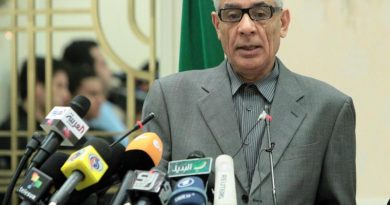Palestinian Authority Prime Minister Resigns
Neve Walker
Staff Writer
Following diplomatic efforts involving various Arab countries and the United States, Prime Minister Mohammad Shtayyeh of the Palestinian Authority, the Palestinian body in charge of parts of the Israeli-occupied West Bank, tendered his resignation. These diplomatic efforts involved countries such as Saudi Arabia to persuade the Palestinian Authority to reorganize itself for its administrative takeover after the war ends in Gaza, reports The New York Times.
Despite this resignation, it is still unclear whether Shtayyeh’s resignation will be the tipping point to persuade the Israeli government to let the Palestinian Authority govern Gaza. Israeli leaders have already implied that they would not allow the current leaders to run Gaza, though with new leadership in the Prime Minister position, Arab and American leaders are hopeful that Israel will be more likely to cede control of Gaza. President Mahmoud Abbas will stay in his position, as will his security chiefs. In the interim, Shtayyeh will stay the prime minister as the search for a replacement commences.
“The next stage and its challenges require new governmental and political arrangements that take into account the emerging reality in the Gaza Strip,” Shtayyeh wrote according to The New York Times. The challenges mentioned are regarding “the extension of the Palestinian Authority’s sovereignty over the entire land of Palestine.”
Abbas will remain the key figure in the Palestinian Authority considering there is no functional parliament in the areas controlled by the authority.
The Palestinian Authority was created as a part of the 1993 Oslo Accords and was designed to be an interim body, according to the Washington Post. This agreement, between the Palestine Liberation Organization, was supposed to be a foundation for a two-state solution and a sign of the establishment of Palestinian self-rule. After decades of negotiations, however, the goal of establishing a Palestinian state and achieving peace failed. Outbreaks of violence and protests over the years have been a regular occurrence.
Despite the resignation of the Prime Minister, the Authority still struggles with its longstanding lack of legitimacy, a sentiment held by both Israel and even its own people. This lack of legitimacy will pose a problem to the United States, which is calling for the reorganization of the Palestinian Authority as a peaceful governing body for postwar Gaza, reports PBS.
However, this is dependent on whether the war in Gaza ends with the defeat of Hamas, a Palestinian militant group. This goal of Israel has led to the deaths of 30,000 and the internal displacement of millions of Palestinians in Gaza. Palestinians in Gaza are now on the brink of famine, coupled with the high risk of outbreaks of infectious diseases.
Israeli Prime Minister Netanyahu has vowed to destroy both the military and governing capabilities of Hamas, which has ruled Gaza since 2007 and organized the October 7 attack on Israel. This October attack kickstarted the current war in Gaza. Netanyahu has also called for Israel to maintain security control of Gaza after the war, with Palestinian authorities in charge of civilian affairs. Palestinians have rejected this idea, claiming they do not want such a limited role. They are also seeking to be an independent state in the West Bank, east Jerusalem, and Gaza, areas that were captured and occupied by Israel in 1967, according to the Associated Press.
Despite the Palestinian Prime Minister’s resignation, negotiations continue regarding the future of governance in Gaza and the sovereignty of a future Palestinian State. For the time being, significant progress remains unlikely.
Image courtesy of Getty Images


